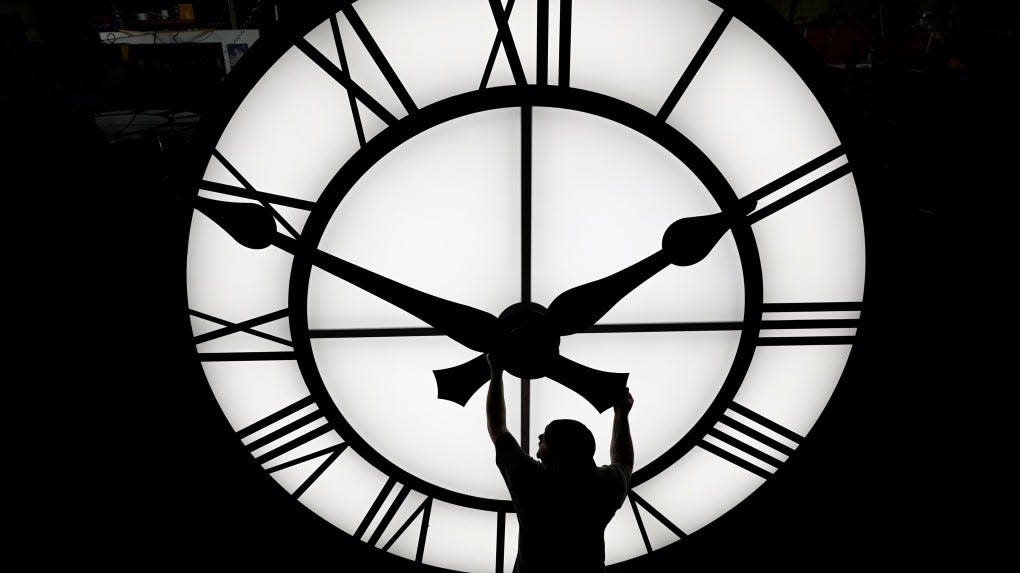It's time to dump Daylight Savings Time

We sit at the cusp of what might be a major change in a practice that affects all Americans. It is a change many have wanted, though time and again, we have been denied.
It is a practice that many do not understand, not its history nor its function. And it has generated much consternation in our world.
Of course, I’m talking about the changing of the clocks that happens each year, disrupting our sleep and changing the ways we live for several weeks after the clocks are reset.
It has been suggested that this will be the last year of the changes. No more will Americans have to deal with a night of one less or one hour more of sleep — now everyday will use the same time all year long.
But what will be our yearlong time scheme? Will we maintain Standard Time, or will we adopt Daylight Savings Time? And how will we make the decision?
Practical people among us wish the decision to be made scientifically, based on research applied to human life. The practice of changing time is a little over 100 years old, and plenty of data could be mined to clarify what happens to humans in both time schemes. It might be that one scheme or the other might benefit our quality of life. There might be ways to discern those qualities.
In fact, sleep experts have discovered tremendous benefits in keeping Standard Time, the way our clocks are in the winter months, and to dump Daylight Savings Time altogether. Standard time aligns more directly with human’s circadian rhythms, those natural processes that respond to the earthly cycle of light and dark. These rhythms affect our physiology, which affects the quality of our lives.
Data show humans to be healthier in Standard Time. Why? Because in Standard Time, we wake with the sun nearly every morning, and darkness comes earlier and eases us into our repose, two things Daylight Savings Time does not do.
Health experts agree that life during Daylight Saving Time increases mood disorders, cardiovascular disease, and other significant ailments. If we want to be wise about the qualities of life that influence our health, we should not jump ahead this spring, but rather should remain with our clocks as they are now, for the rest of our days.
Unfortunately, there are people in the world who oppose such practicalities. Rather than using science to decide which time scheme might be better, these people would choose based on personal preferences.
One such person is Florida’s Marco Rubio, who in March of 2022, drafted “The Sunshine Protection Act,” which promotes Daylight Saving Time. This bill, which passed the senate rather quickly, keeps clocks set to a time that will keep the sun out longer in the evening through the winter months (all months, really).
But before we make this decision, ask yourselves what if . . .
In Florida, under Standard Time, the latest sunrise would be roughly 7:00 a.m. on December 21 each year. Moreover, the sun would not be in the sky after 8:00 p.m., anytime, even in the middle of summer. Contrarily, with permanent Daylight Saving Time, the latest sunrise would be roughly 8:00 a.m., again on December 21, and the latest sunset would be approximately 8:30 p.m. on June 21.
These differences do not necessarily seem great, and some of you might understand this dilemma as a coin flip. It may be that some people like sun in the morning and some like it at night. What’s the big deal?
The big deal is another practical issue: humans evolved on a planet that receives sun in measurable daily doses. The amount of sun we receive, and when we receive it, affect our metabolism. When we measure the influence of these forces, based on human physiology, we find that morning sun is more important than evening sun to our quality of life. This is a quality that can be measured — humans have fewer heart attacks, better mental health, and a smaller likelihood of metabolic syndrome.
We are healthier, when we awake with the sun, and we do that more in Standard Time than Daylight Savings Time. We are this way because we have, for thousands of generations, lived in a world that used the sun to set time schemes on our days. It has only been five or six generations that those time schemes have been altered by human intervention.
There are significant reasons to choose Standard Time over Daylight Saving Time, reasons that take into consideration more than personal taste and preference.
People should take a long look into the future when they mess with natural forces. Clock-time is a human invention, but the relationship we have with the sun is a natural phenomenon that has been with us for a long time.
Ben Graffam is a resident of Lakeland.
This article originally appeared on The Ledger: It's time to dump Daylight Savings Time

